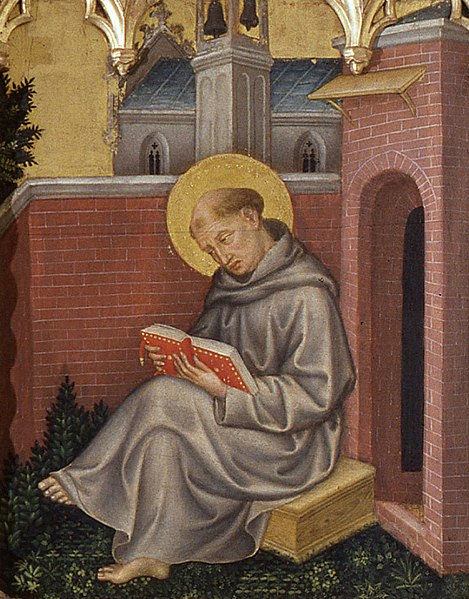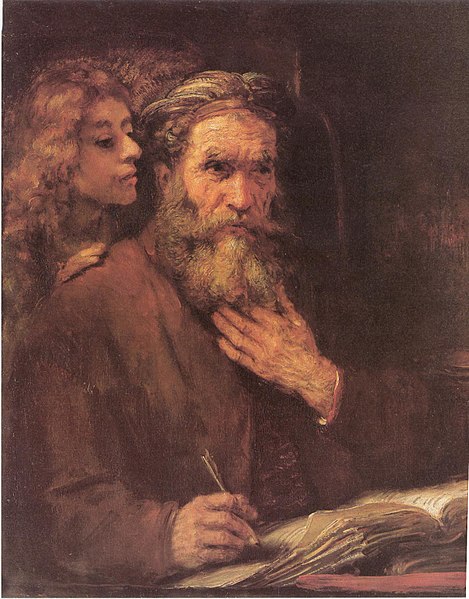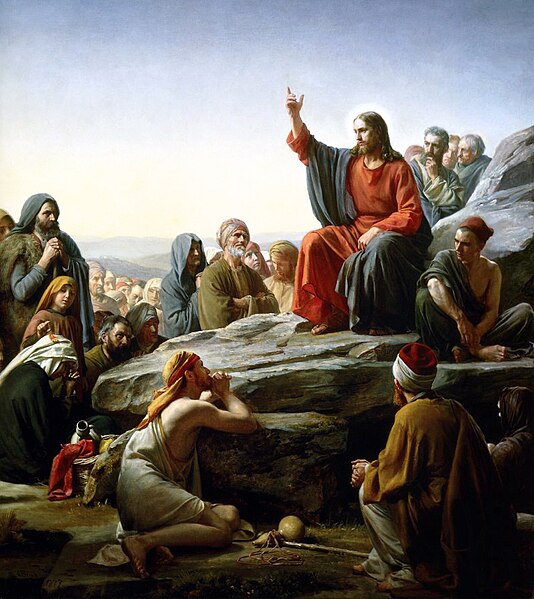Incarnation (Christianity)
In Christian theology, the doctrine of incarnation teaches that the pre-existent divine person of Jesus Christ, God the Son, the second person of the Trinity, and the eternally begotten Logos, took upon human nature and "was made flesh" by being conceived in the womb of a woman, the Virgin Mary, also known as the Theotokos. The doctrine of the incarnation then entails that Jesus was at the same time both fully God and fully human.
The incarnation illustrated with scenes from the Old Testaments and the Gospels, with the Trinity in the central column, by Fridolin Leiber, 19th century
The "Heavenly Trinity" joined to the "Earthly Trinity" through the Incarnation of the Son – The Heavenly and Earthly Trinities by Murillo (c. 1677)
Christian theology is the theology – the systematic study of the divine and religion – of Christianity and Christian belief and practice. It concentrates primarily upon the texts of the Old Testament and of the New Testament, as well as on Christian tradition. Christian theologians use biblical exegesis, rational analysis and argument. Theologians may undertake the study of Christian theology for a variety of reasons, such as in order to:help them better understand Christian tenets
make comparisons between Christianity and other traditions
defend Christianity against objections and criticism
facilitate reforms in the Christian church
assist in the propagation of Christianity
draw on the resources of the Christian tradition to address some present situation or perceived need
education in Christian philosophy, especially in Neoplatonic philosophy
Thomas Aquinas from Valle Romita Polyptych by Gentile da Fabriano
Rembrandt's The Evangelist Matthew Inspired by an Angel, 1661
Christ in Gethsemane, Heinrich Hofmann, 1890
Jesus, believed to be both man and God, painting by Carl Heinrich Bloch






